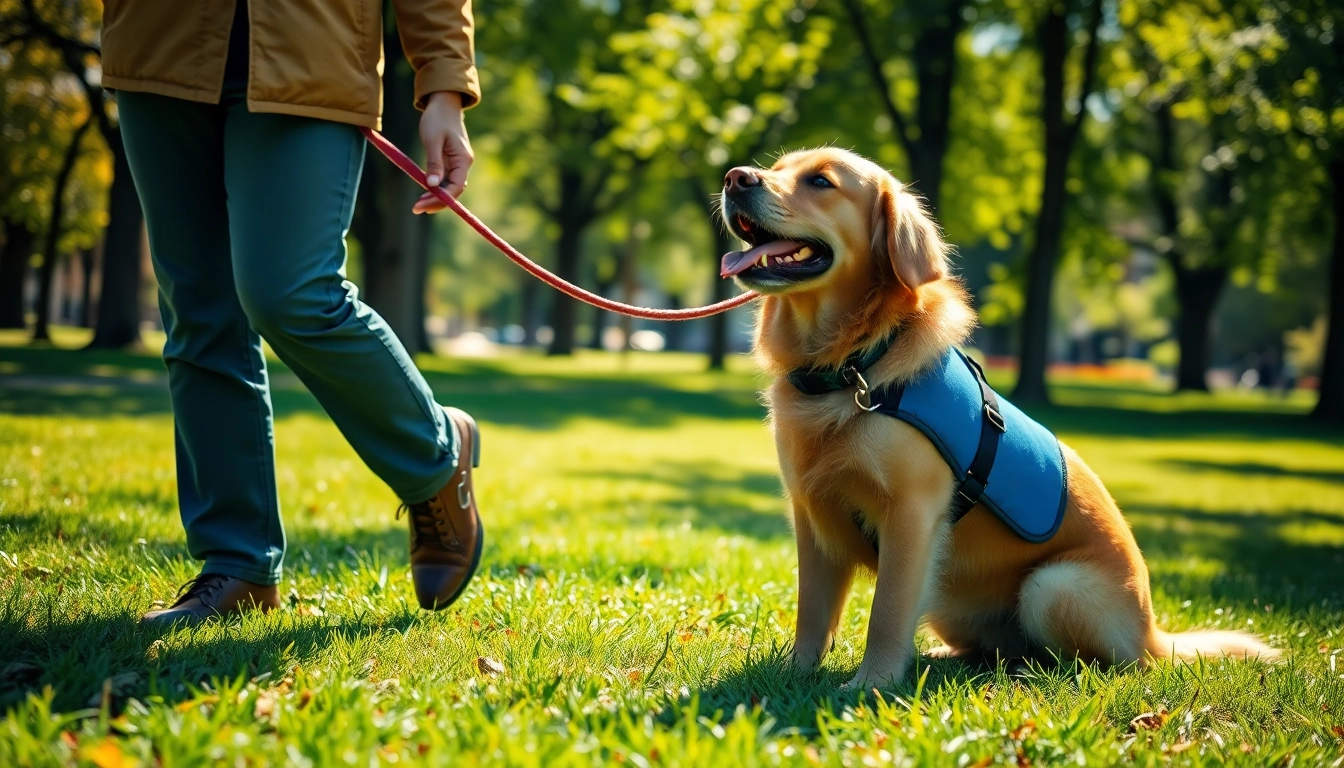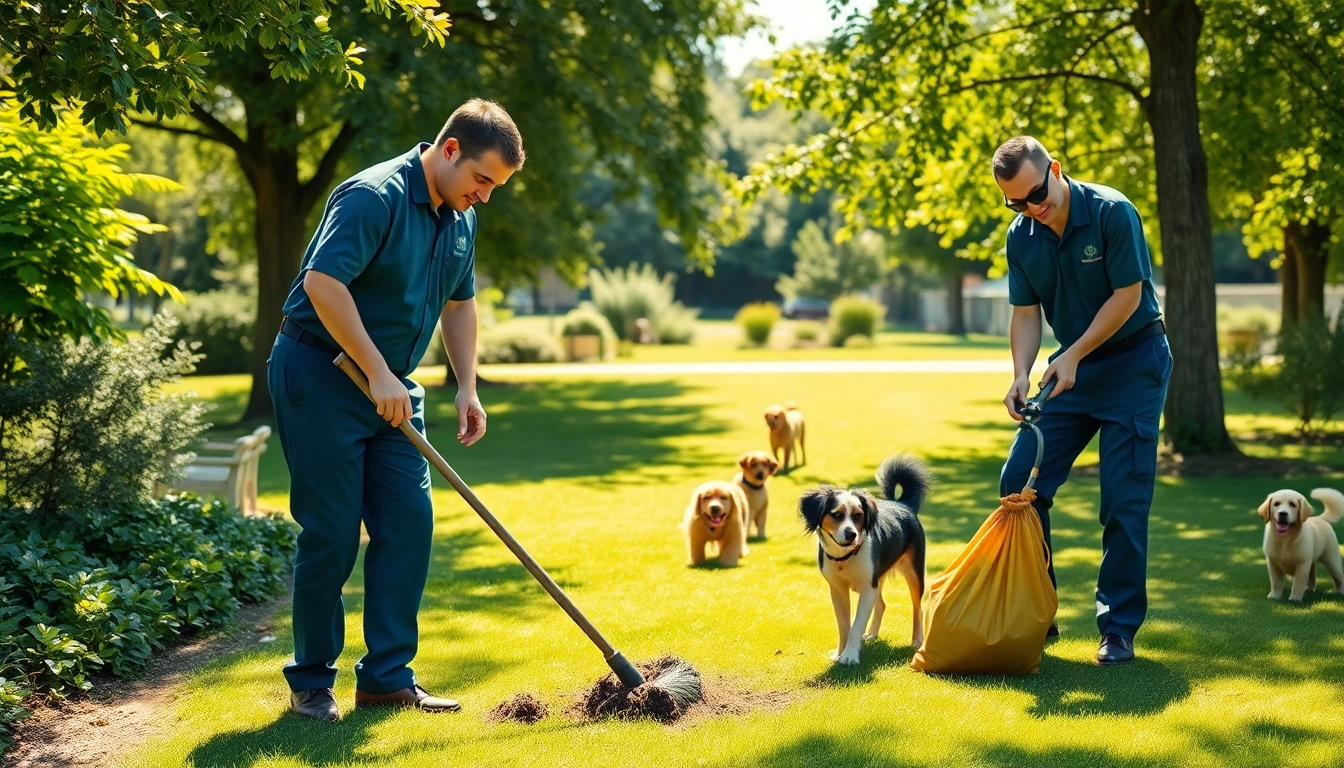Understanding the Role of Service Dogs
What is a Service Dog?
A service dog is specifically trained to assist individuals with disabilities in their daily activities. Unlike emotional support animals or therapy dogs, service dogs undergo extensive training to perform specific tasks that aid their handlers, ensuring a higher degree of independence and capability. These dogs are recognized by law under the Americans with Disabilities Act (ADA) and can accompany their handlers in almost all public places.
Benefits of Having a Service Dog
The presence of a service dog offers numerous benefits beyond simply assisting with tasks. For individuals with mobility issues, a service dog can help with stability and provide physical support. For those suffering from psychiatric conditions such as PTSD or severe anxiety, these dogs can reduce symptoms through constant companionship and alertness to impending crises. Furthermore, the bond developed between a service dog and its handler can foster emotional well-being, encouraging social interaction and providing a sense of safety.
Common Misconceptions About Service Dogs
Despite the growing awareness of service dogs, misconceptions still abound. One common myth is that all dogs can be service dogs with proper training, which is incorrect. Service dogs require specific temperaments and characteristics to ensure they’re suited for the tasks they will perform. Another misconception is that service dogs must wear a vest or identification, which is not mandatory under current laws, although it can help in public spaces.
How to Buy a Service Dog
Researching Reputable Breeders and Organizations
The first step in acquiring a service dog is extensive research. Identify reputable breeders and organizations that specialize in training service dogs. Factors to consider include their training methodologies, the health of their dogs, and their success rates in placing service dogs with individuals who need them. Look for organizations that adhere to industry standards and regulations, such as being accredited by relevant bodies in service dog training.
Understanding Pricing and Financing Options
The price of a service dog can vary significantly, ranging anywhere from $15,000 to $30,000 depending on the dog’s breed, training level, and the organization. Financing options such as payment plans, loans, or fundraising campaigns may be available through certain organizations. It’s crucial to be prepared for the financial commitment, including routine veterinary care, food, training, and ongoing support.
Evaluating Your Needs Before Purchase
Before making a decision, consider your specific needs and how a service dog can meet those needs. Different individuals require different types of assistance, such as physical support, emotional support, or task-specific tasks. Understanding your requirements will help guide your choice in the breed and training of the service dog you seek to acquire.
Training Requirements for Service Dogs
Essential Skills a Service Dog Must Learn
Service dogs must master a variety of skills to perform their duties effectively. Essential skills can include guiding individuals with visual impairments, assisting with balance, alerting to sounds for those with hearing loss, or recognizing and responding to anxiety attacks in handlers. Each skill is tailored based on the handler’s specific disability. Rigorous training is fundamental to ensure that the service dog can perform these tasks reliably.
Training Programs and Resources
Numerous training programs are available for service dogs, ranging from in-person training to online courses. Organizations may offer programs that include extensive training sessions conducted by certified professionals. Additionally, some handlers may choose to train their own service dogs, which can be a rewarding but challenging path, requiring a deep understanding of dog behavior and training techniques.
Ongoing Training and Support for Handlers
The relationship between a service dog and its handler is dynamic, requiring ongoing training and support. Continuous training ensures that the dog remains well-behaved and effectively supports its handler’s needs. It is also beneficial to have access to support networks or groups where handlers can share experiences and challenges, learning from one another’s journeys.
Legal Considerations When Buying a Service Dog
Understanding the ADA Regulations
Familiarity with the Americans with Disabilities Act (ADA) is essential for anyone considering a service dog. The ADA outlines the rights of individuals with service dogs, including access to public places and the conditions under which service animals can be evaluated. Knowing these regulations helps protect both the handler and the service dog, ensuring they are treated with respect and dignity in public settings.
Documentation and Certification Necessities
Documentation about the service dog’s training may be required, especially in public places, although the ADA does not require specific certification for service dogs. Handlers can benefit from keeping training records, health and vaccination documentation, and any relevant behavioral assessments on hand for interactions with the public or law enforcement when necessary.
Rights and Responsibilities of Service Dog Handlers
Service dog handlers have rights as defined by law, but they also hold responsibilities. Handlers are responsible for their dog’s behavior in public spaces, ensuring that it does not cause disruptions or harm. Additionally, handlers must maintain their service dog’s training and health, including regular vet visits and adherence to local laws governing animal control.
Resources for Potential Service Dog Owners
Support Groups and Community Networks
Many resources are available to potential service dog owners, including local support groups and online communities. These groups offer a platform for sharing experiences, advice, and emotional support, helping to navigate the process of acquiring and living with a service dog. Engaging with these networks can enrich the journey and address common challenges faced by service dog handlers.
Frequently Asked Questions About Service Dogs
Many prospective service dog owners have similar questions regarding the purchase and training of service dogs. Common inquiries include eligibility, the difference between service dogs and other types of assistance animals, and the process for obtaining a service dog. Providing clear and concise answers to these questions can significantly ease the stress of potential owners.
Additional Educational Materials for Handlers
For those interested in furthering their knowledge, numerous educational materials are available, including books, online courses, and webinars covering various aspects of service dog ownership. From understanding disabilities and needs to enhancing training techniques, educational resources can offer valuable insights that improve the relationship between a service dog and its handler.
Obtaining a service dog is a significant commitment that reveals a deeper relationship built on trust, respect, and support. By taking the right steps and being thoroughly informed about the responsibilities and processes involved, you can successfully buy a service dog that will enhance your quality of life and independence.



